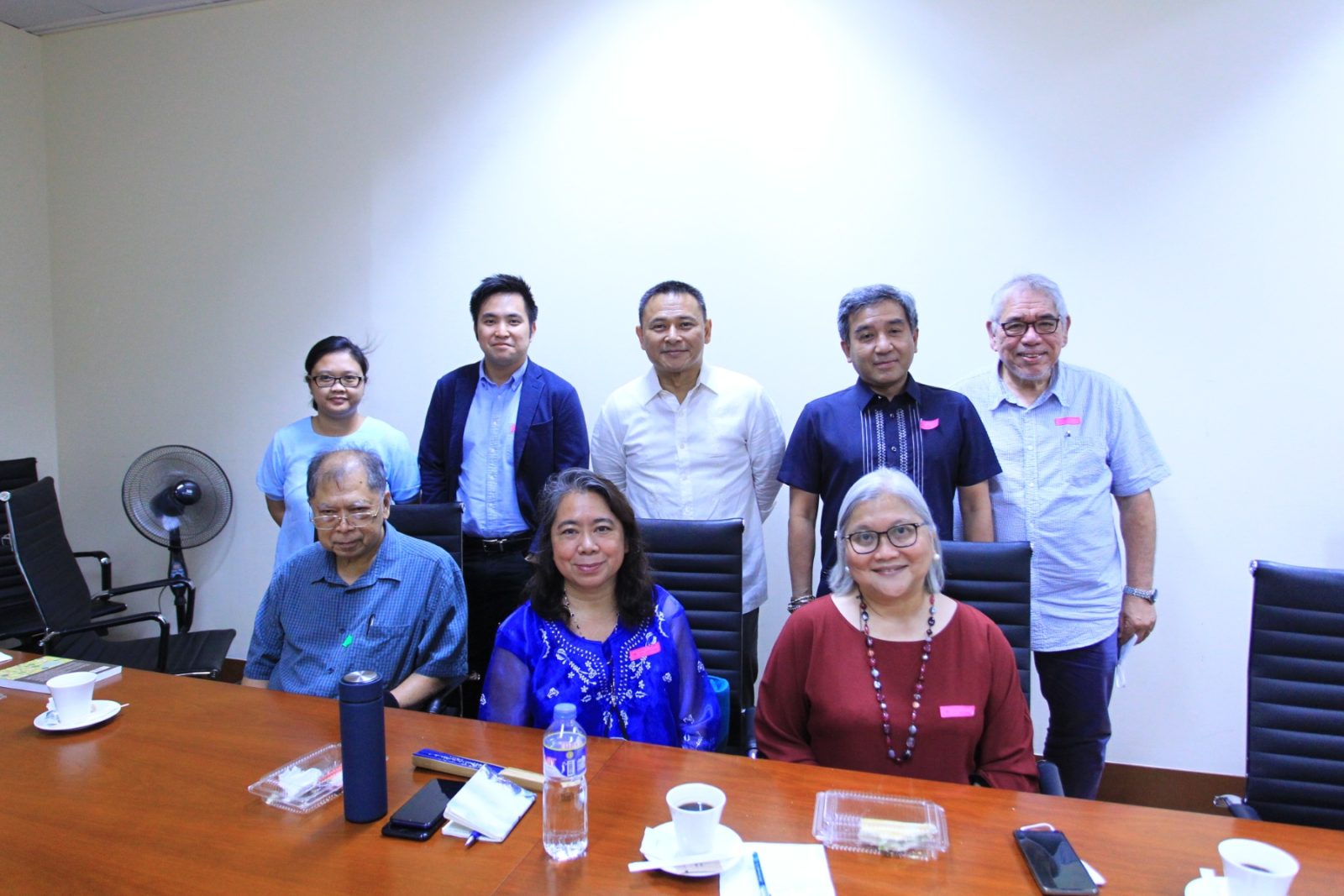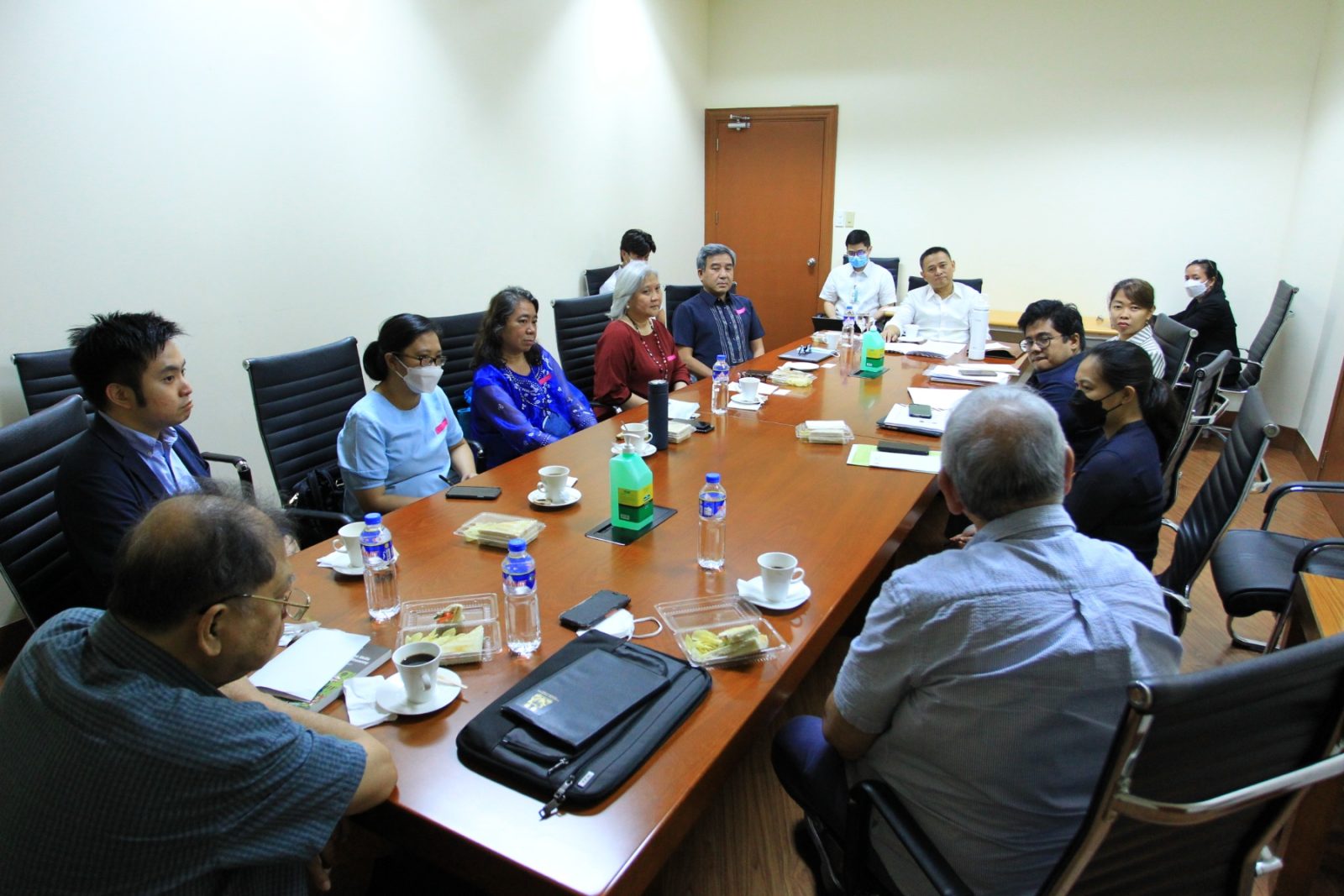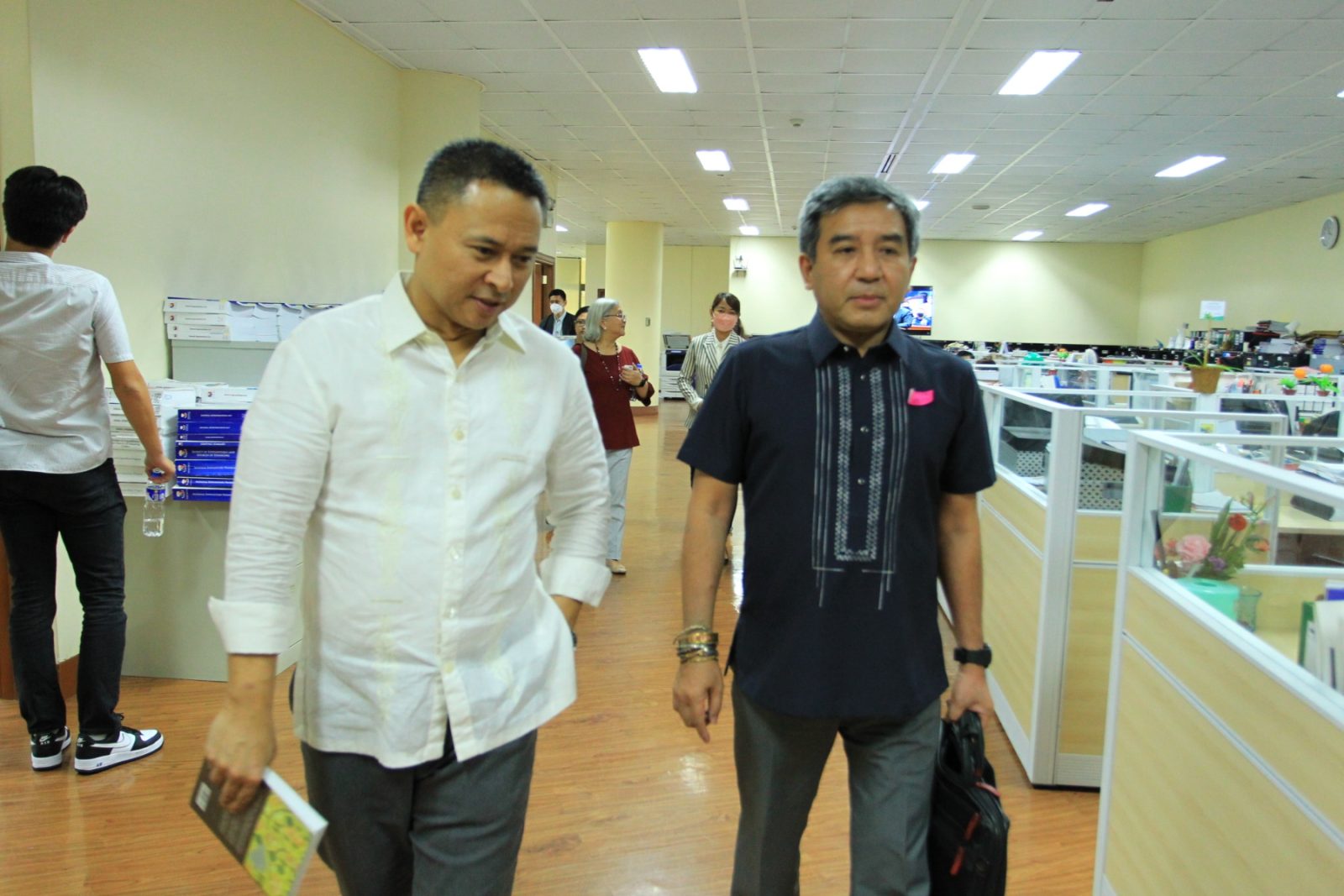At a recent meeting with the Office of Sen. Juan Edgardo M. Angara (OSEA), a team of experts from UP Diliman (UPD) presented university initiatives that can possibly dovetail with the senator’s Tatak Pinoy program that aims to strengthen the country’s industries.
Led by UPD Chancellor Fidel R. Nemenzo, the experts from UPD were composed of Maria Antonia N. Tanchuling, PhD, dean of the UPD College of Engineering (COE); Laura T. David, PhD, director of the Marine Science Institute (MSI) of the UPD College of Science; Francisco J. Lara Jr., PhD, a professor of sociology at the Department of Sociology of the UPD College of Social Sciences and Philosophy; and Rene E. Ofreneo, PhD, professor emeritus of the UPD School of Labor and Industrial Relations. Rounding up the UPD experts were Lianne Angelico C. Depante, an assistant professor at the Faculty of Management and Development Studies of the UP Open University; and Mary Josephine Bautista, a senior project associate at the Political Economy Program of the UP Center for Integrative Development Studies.

According to a report by the UPD Task Force on a Blueprint for Building the Nation (Task Force Nation-Building), the “Tatak Pinoy Program aims to produce more jobs and entrepreneurship opportunities, and support priority industries to make them more competitive.”
The UPD team shared key initiatives of the university on: micro, small, and medium enterprises; data science programs; harnessing ocean/tidal energy; and coastal engineering.
Nemenzo shared that the UPD Institute for Small Scale Industries (ISSI) offers capacity-building programs for small businesses and is often tapped by the Department of Industry for training. He offered to link the OSEA with the ISSI.
Nemenzo also shared the university’s plan to establish a center for programs on intelligence systems at the PhD level. The COE is also developing a degree program on cyber security.
Meanwhile, David shared that the country can take the lead in developing technology to harness energy from tropical seas, and share it with neighboring countries. She proposed a laboratory to test how energy can be generated from the ocean. Currently, the MSI has identified 10 possible turbine sites.
She also shared plans for further capacity-building initiatives in the maritime sciences, such as a virtual university for ocean sciences.

Tanchuling, for her part, shared the proposal for a coastal engineering laboratory and mentioned the COE’s partnerships with government agencies and industries on technology testing and other related studies. She also said the COE has a shaking table and wind panels. The college is the only one in the country to own a shaking table. This is used to test the intensity of earthquakes while the wind panels are used for testing the strength of typhoons.
Lara raised the mechanization of machinery and improvement of storage systems in agriculture, as David raised the possibility of exploring the country’s potential for biodiversity tourism.
The need for Philippine industrial policy and stronger research and development was also discussed at the meeting with Angara.
The team of experts discussed the need for increased budget and incentives for research. They also touched on the need to improve the industries’ capacity to absorb graduates in the fields of science and engineering.
Ofreneo said government policies need coherence, particularly industrial policy which needs to have a national identity instead of focusing on attracting foreign investments. The group also tackled the need for better mechanisms for technology transfer/acquisition from foreign companies.
Meanwhile, David proposed a review of a circular from the Department of Budget (DBM) and Management because of its very extensive requirements in the hiring of PhD students in SUCs.
For his part, Angara proposed a mapping of state universities and colleges (SUCs) and the existing distribution of skills, and shared that the Second Congressional Commission on Education (EDCOMM II) started its review of the education system under the Department of Education, Commission on Higher Education, and Technical Education and Skills Development Authority.
Angara and the team of experts agreed that the UPD team will provide: proposal and list of possible turbine sites for the MSI project on harnessing tidal energy; proposal/ concept note on the COE coastal engineering laboratory; and UP guidelines on hiring of PhDs that will be used for comparison with the DBM circular.

The UPD team will also provide Angara with a copy of the book of Antoinette Raquiza, PhD on industrial policy.
Raquiza is a professor of political economy at the UPD Asian Center.
It was noted that Angara’s office will closely coordinate with the team to refine collaboration plans and timelines, as well as discuss more details about the work of the EDCOM II.
Furthermore, should the OSEA provide funding, the Task Force Nation-Building reported that it would be best to course the funding to UP’s General Appropriations Act to minimize the requirements and shorten the time needed for approval.
Task Force Nation-Building was set up by the UPD Office of the Chancellor through Administrative Order No. FRN-21-021. It organized the UPD #PILIpiLUNAS2022 Governance Agenda that seeks to advance sustainable, equitable, participatory, and innovation-driven national development, the task force’s contribution on policy alternatives arising from the disruption caused by the COVID-19 pandemic and the May 9, 2022 national elections. The UPD team’s meeting with Angara and the OSEA was on Feb. 7. — With a report from the Task Force on Nation-Building
